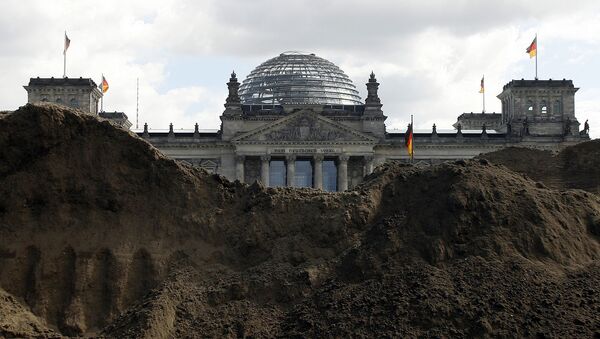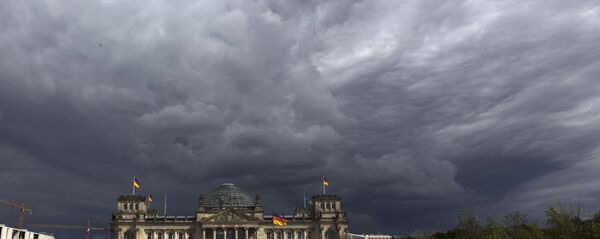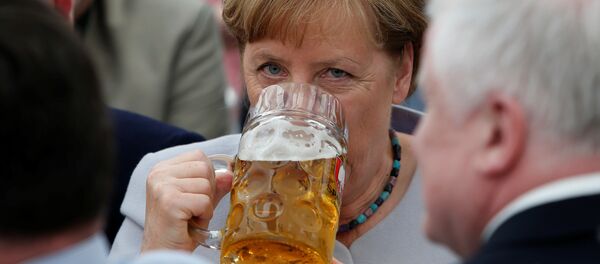In a blog post, Voigt wrote that the Russian President had clearly articulated "the reasons for the denial of state sovereignty for the Federal Republic of Germany, which to this day is subject to the provisions of the Allied post-war occupation law."
"These provisions were expressly confirmed in the Paris Agreements of 1954 and the Two Plus Four Agreement of 1990 and established the widest possible rights of the victorious powers of the Second World War. Today, however, they are only perceived from the Western powers, above all the US. President Putin is, therefore, perfectly correct in his statement that, especially in the military field, all the requirements come from Washington, and the Federal Republic has, at best, vassal status. German patriots have never claimed anything else," Voigt declared.
President Putin's comment that Germany is suffering from a lack of sovereignty was a response to Angela Merkel's observation about the state of transatlantic relations.
The German Chancellor told a pre-election campaign event in Bavaria last month that, "we Europeans really need to take our fate into our own hands," and "the times when we could completely rely on others are more or less over."
Professor Andrei Manoilo of Moscow State University told Radio Sputnik that the present situation offers Merkel the chance to win more independence from Washington, but that the Chancellor is unlikely to grasp it.
"The German deputy hasn't discovered America, he articulated an obvious fact. It's all true, he didn't invent or embellish anything. As for Merkel, now she is trying, in a volatile situation, to grasp the branch that will allow her at least partially to play the role of national leader rather than a manager controlled by Washington. However, Merkel is doing it very cautiously," Manoilo said.
"There was a change in Washington which weakened the grip it has on Europe and Germany above all. At the moment, Trump is by and large not concerned with Germany and neither are his opponents – they are busy trying to drive him into a corner. The grip has weakened and the Germans have had a breath of fresh air, but the grip could return tomorrow," he warned.
"Why would they change? After all, the current German political elite is living in its comfort zone. They are completely satisfied with the fact that they are not independent, that many things are decided for them. I think that they are so accustomed to this regime that they don't want freedom," Manoilo commented.
During a plenary discussion at the St. Petersburg Economic Forum last week, Putin touched on Angela Merkel's recent declaration regarding the state of the transatlantic relationship.
According to the Russian President, Berlin's recent disillusionment with Washington can be linked to a lack of sovereignty.
"There are not so many countries in the world that have sovereignty. And Russia treasures the fact that we do have it," Putin said.
"I do not want to offend anyone, but what Mrs. Merkel said is dictated by long-accumulated resentment regarding limited sovereignty."
"And by the way, within the framework of military-political alliances, it is officially restricted. There it is clearly defined what [a country] can and cannot do – and in practice it's even stricter," the President added.




